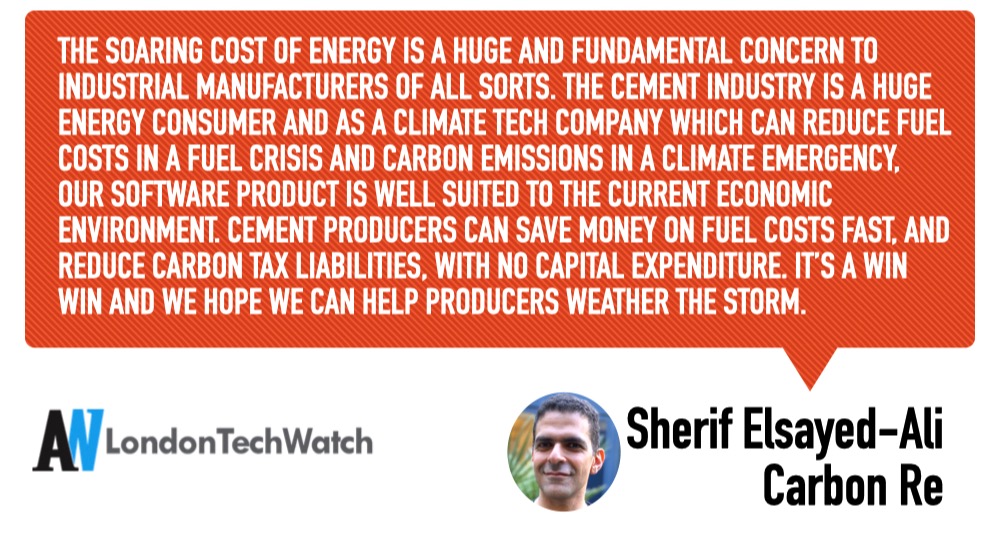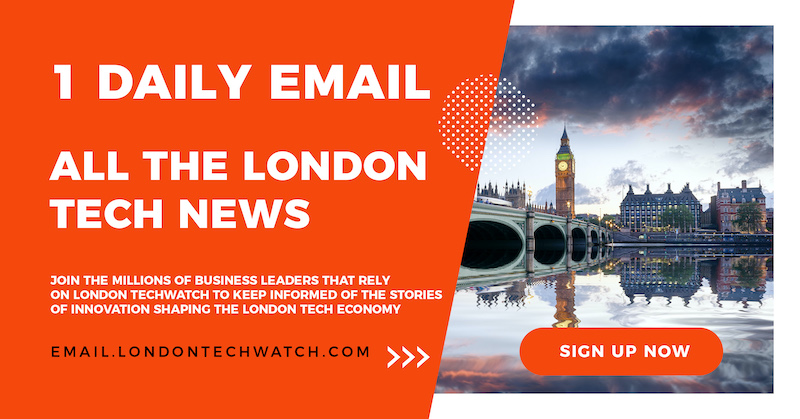In 2015, the cement industry accounted for 8% of global carbon emissions; 1 tonne of cement production yields .9 tonnes of emission. Reducing the carbon footprint of the industry has become a critical goal to combat climate change while still allowing for the development that relies on cement. Carbon Re is a carbon reduction startup that uses machine learning to introduce efficiencies in carbon emissions in industrial applications like cement manufacturing. Taking a holistic approach, the company’s flagship product is the Delta Zero Ai platform which is able to optimize kilns, reduce fuel consumption, and modernize transport to ensure that manufacturers are not only able to reduce their footprint but also save funds during production as well as be eligible for credits through governmental schemes. As the solution is completely software-driven and can be used at any plant, it’s a frictionless option to adopt that does not require any new capital expenditure or specialized training. While much of the focus has been on carbon capture technologies of the future, Delta Zero can be integrated today. The company estimates it can reduce emissions by more than 50 kilotonnes per year or the equivalent of removing 11,000 cars from the road.
London TechWatch caught up with Carbon Re CEO and Cofounder Sherif Elsayed-Ali to learn more about the business, the company’s strategic plans, latest round of funding, which brings the total funding to £5.2M, and much, much more…
Who were your investors and how much did you raise?
We raised £4.2 million in our recent seed round, which was led by Planet A with follow-on participation from Clean Growth Fund, UCL Technology Fund, and Cambridge Enterprise who were investors in our 2021 pre-seed round.
Tell us about your product or service.
Our AI platform, Delta Zero, provides the intelligence to enable the highly pollutive cement industry to reduce over 50 kilotonnes of annual CO2 emissions per plant and achieve substantial cost savings from reduced energy consumption. The cloud-based platform models the unique production environment of each plant and uses advanced machine learning and AI techniques to achieve previously out-of-reach operational efficiencies. Delta Zero continuously analyses manufacturing data to enable plant operators to optimise production processes on a near-live basis.
 What inspired the start of Carbon Re?
What inspired the start of Carbon Re?
All four founders are driven by our company mission to reduce gigatonnes of industrial carbon emissions every year. Heavy industry is responsible for more than 20% of all greenhouse gas emissions, with cement accounting for some 8% on its own. It is one of the hardest sectors of the economy to decarbonize. Quite simply, we can’t hit our climate goals if we don’t address this and that’s what Carbon Re is setting out to impact.
Buffy Price and I worked together previously at a fast-growing AI startup called Element AI, where I established the AI for Climate practice. Daniel Summerbell as a researcher at Cambridge University’s Institute for Manufacturing focused on the opportunities of improving sustainability in cement production by reducing process inefficiencies – he developed a novel methodology during his PhD at Cambridge University. Aidan O’Sullivan has been one of the leading researchers and practitioners of the application of AI to energy systems; he is Associate Professor of AI and Energy Systems at UCL where he leads the Energy Systems and Artificial Intelligence Lab and Programme Committee Chair in AI and Climate Change at IRCAI – the International Research Centre for AI – under the auspices of UNESCO.
Prior to Carbon Re, our founders collaborated in various professional projects and in late 2020, Buffy, Daniel, Aidan and I decided to set up Carbon Re.
How is it different?
We are applying advanced machine learning and AI expertise to tackle traditionally hard-to-abate industries such as cement, steel, and glass. Our approach builds on the progress in the sector in digitalisation through programmes like Industry 4.0. The greater availability of data thanks to these initiatives is a huge resource that has not been fully exploited by the sector.
What market are you targeting and how big is it?
Carbon Re is targeting energy-intensive materials industries, starting with cement and steel. We are targeting energy and emissions reductions – this is a hugely underserved market that will grow into billions of dollars annually, particularly as carbon pricing schemes grow over coming years, as widely predicted.
What’s your business model?
Our first product is an annual SaaS subscription.
How are you preparing for a potential economic slowdown?
The soaring cost of energy is a huge and fundamental concern to industrial manufacturers of all sorts. The cement industry is a huge energy consumer and as a climate tech company that can reduce fuel costs in a fuel crisis and carbon emissions in a climate emergency, our software product is well suited to the current economic environment. Cement producers can save money on fuel costs fast, and reduce carbon tax liabilities, with no capital expenditure. It’s a win-win and we hope we can help producers weather the storm.

What was the funding process like?
It was actually very exciting and we’re grateful to all our investors. We have built a unique offering, aimed at creating material financial and climate impact in a hard-to-tackle area, using cutting-edge technology, with a strong revenue and profit outlook. It is proving to be a very investable proposition.
What are the biggest challenges that you faced while raising capital?
We were lucky to have a lot of interest from investors, but it means that raising capital is very time-consuming and, inevitably, means you focus less on the core business than you would like. So it’s really important to have a complementary leadership team who trust each other and can use their collective time and effort to keep pushing across raising, product development, customer acquisitions, and organisational development.
What factors about your business led your investors to write the check?
Firstly, the energy-intensive industries we are targeting such as cement and steel, produce more than 20% of global greenhouse gas emissions. These industries are vital to the global economy, producing 75% of all the materials for manufacturing and construction sectors, with demand projected to continue growing beyond the 2050 net-zero targets. Our AI technology enables fast, positive impact by empowering operators to save up to 50 kilotonnes of annual CO2 emissions per plant and millions of dollars in fuel costs (note: each installation of our solution can avoid as much CO2 as taking 11,000 cars off the road). We believe that the fast-growing demand for emissions reduction solutions and the size of the opportunity we are tackling make Carbon Re a very attractive proposition for investors.
Firstly, the energy-intensive industries we are targeting such as cement and steel, produce more than 20% of global greenhouse gas emissions. These industries are vital to the global economy, producing 75% of all the materials for manufacturing and construction sectors, with demand projected to continue growing beyond the 2050 net-zero targets.
Secondly, as a company, we are able to attract outstanding talent in machine learning, industrial processes, and across the whole organisation. We are building a truly world-class team with a unique blend of expertise tackling a huge problem in novel ways.
What are the milestones you plan to achieve in the next six months?
We’re looking forward to completing the various trials we’ve been running, onboarding new customers, and showing the very substantial financial and environmental savings we’re achieving.
We’re also building out our engineering and industry teams to drive the next wave of innovation and implementation.
What advice can you offer companies in London that do not have a fresh injection of capital in the bank?
In the current economic conditions, we all need to be strategic in how we spend our capital, regardless of how much we have in the bank. How can we be strategic? By focusing on giving the best value and experience to our customers.
Where do you see the company going now over the near term?
We’re investing in top talent to help us accelerate the development of our technology for the cement industry and to expand into steel while focusing on growing our customer base and revenue. Most importantly, we want to multiply our climate impact every year.
What is your favourite restaurant in London?
There are so many great restaurants but I’ll pick Ahl Cairo off Edgware Road, one of the few restaurants from my home country (Egypt) in London. It’s a simple venue but the food is amazing!




